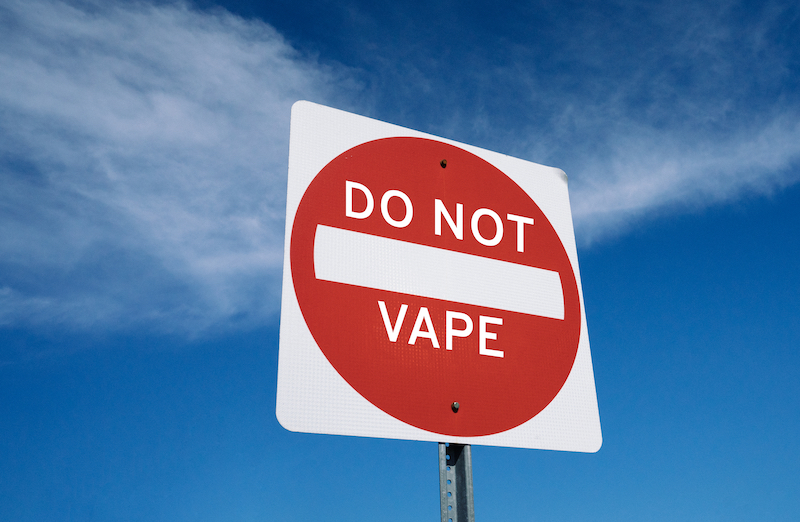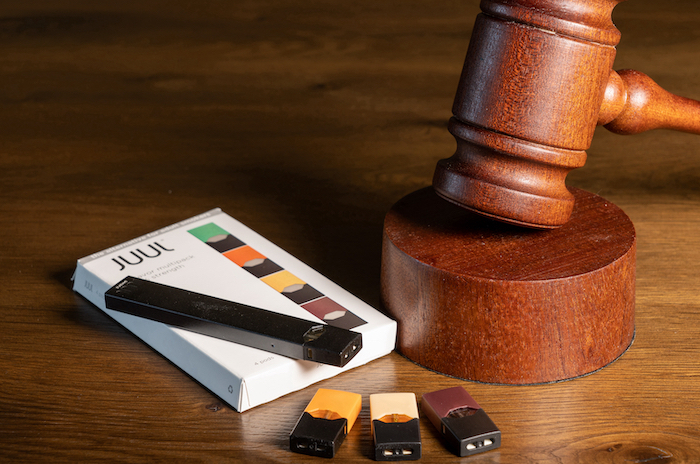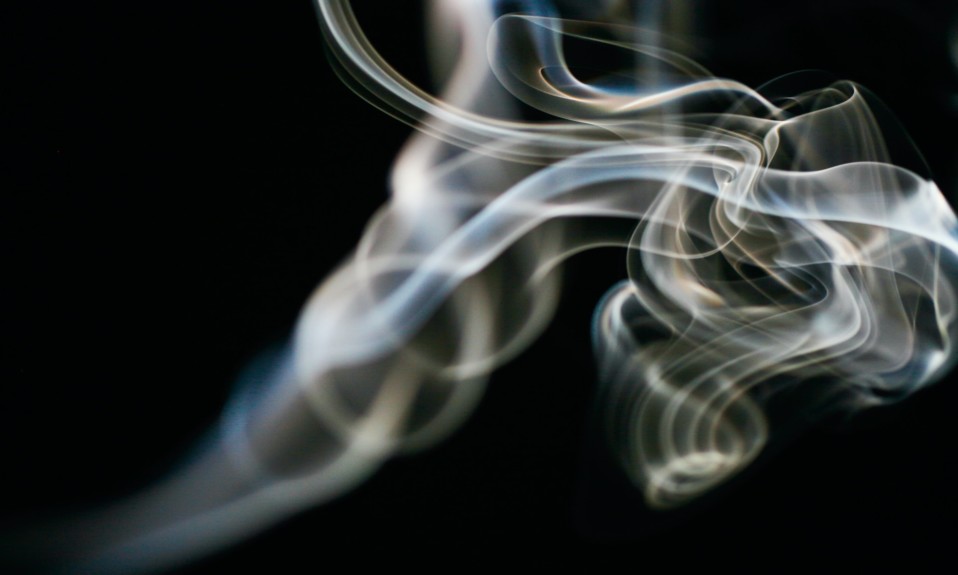The moves are an escalation of the U.S. government’s crackdown on e-cigarette manufacturers
By Jennifer Taylor
In a first, the U.S. Department of Justice (DOJ) filed a series of permanent injunctions in federal district courts against six e-cigarette manufacturers Tuesday for infractions that include failing to submit premarket applications for their e-cigarettes and repeatedly illegally manufacturing, selling and distributing their products.
The injunctions, filed on behalf of the U.S. Food and Drug Administration (FDA), would require the companies and named individuals in the complaints to stop manufacturing, selling and distributing their e-cigarettes. The legal action would also require the defendants to obtain marketing authorization from the FDA before marketing such products, as required by law.
“We will not stand by as manufacturers repeatedly break the law, especially after being afforded multiple opportunities to comply.”
—Brian King, FDA
“[The] enforcement actions represent a significant step for the FDA in preventing tobacco product manufacturers from violating the law,” Brian King, PhD, MPH, director of the FDA’s Center for Tobacco Products, said in a statement. “We will not stand by as manufacturers repeatedly break the law, especially after being afforded multiple opportunities to comply.”
The cases represent the first time the FDA has initiated injunction proceedings to enforce the Federal Food, Drug, and Cosmetic (FD&C) Act’s premarket review requirements for new tobacco products, an action advocacy groups and tobacco control researchers have called for in the past.
The Defendants
All of the defendants had received previous warnings from the FDA that they were in violation of the law. The defendants named in the injunctions are:
- Morin Enterprises Inc., doing business as E-Cig Crib in the District of Minnesota
- Soul Vapor LLC, in the Southern District of West Virginia
- Super Vape’z LLC, in the Western District of Washington
- Vapor Craft LLC, in the Middle District of Georgia
- Lucky’s Convenience & Tobacco LLC, doing business as Lucky’s Vape & Smoke Shop in the District of Kansas
- Seditious Vapours LLC, doing business as Butt Out in the District of Arizona
“These cases are an important step in stopping the illegal sale of unauthorized electronic nicotine delivery system products.”
—Brian M. Boynton, DOJ
Each defendant has the opportunity to agree to consent decrees of a permanent injunction, which prevents it from directly or indirectly manufacturing, selling or distributing any new tobacco products unless and until certain prerequisites are met, according to the FDA. These prerequisites call for the tobacco products to receive FDA marketing authorization, the agency to inspect the defendants’ facilities to determine compliance, and the FDA to notify defendants in writing that they appear to be in compliance with the law. For those defendants that don’t agree to consent decrees, the government can request the relevant courts to enter injunctions preventing them from directly or indirectly manufacturing, selling or distributing any unauthorized tobacco products, the statement said.
“These cases are an important step in stopping the illegal sale of unauthorized electronic nicotine delivery system products,” Brian M. Boynton, the DOJ’s principal deputy assistant attorney general, said in a statement.
Normal enforcement protocol by the FDA of tobacco companies that manufacture and distribute unauthorized tobacco products includes first issuing a warning letter to encourage voluntary compliance with the law. If continuing violations are documented by the FDA, the agency may request that DOJ pursue a judicial enforcement action, such as an injunction or seizure. The FDA also can fine such companies for violations of the FD&C Act relating to tobacco products.
Enforcement History

Researchers at the Public Health Law Center (PHLC) in St. Paul, Minn., have long been critical of the FDA’s ability to enforce the rampant violations of e-cigarette manufacturers. Between 2015 and 2019, the center embarked on a study of the FDA’s tobacco enforcement program, concluding that the agency is falling short of leveraging its authority to stop repeat retail violators. The study analyzed more than half a million FDA inspection records, involving nearly a quarter-million individual retailers. It found that of the repeat offenders that could have been issued a No-Tobacco-Sale Order (NTSO), which would have banned them from selling tobacco for a period of time, less than 2% received one. And under the researchers’ interpretation of federal law, among the repeat violators that did eventually receive an NTSO, nearly all could have been issued the order far earlier—an average of a year and three months earlier, in fact.
“For years, public health advocates have been reporting products to the FDA that should not be on the market, without many—or possibly any—tangible results. Historically, it has been products that were introduced to the market after the effective date of the FDA’s deeming rule [Aug. 8, 2016]. These products that are now being removed are products that did not apply for or receive premarket review authorization from the FDA yet continue to sell their products,” says the PHLC’s Natalie Hemmerich, JD, MPH, who is lead author of the center’s study.
From January 2021 through Sept. 9, 2022, the FDA issued nearly 300 warning letters to firms that collectively had more than 17 million e-cigarettes listed with the agency for failure to submit a timely premarket application. After receiving warning letters, a majority of the companies complied and removed their products from the market, according to the FDA.
Top photo: Shutterstock













